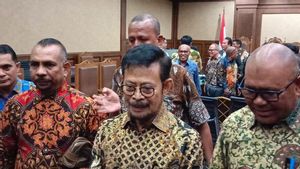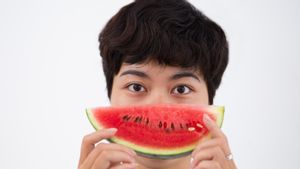JAKARTA - BPJS Kesehatan stated Presidential Regulation (Perpres) Number 59 of 2024 concerning Health Insurance does not include narratives of the elimination of inpatient class levels 1, 2, and 3 for participants of the National Health Insurance Program (JKN).
The statement was made by the Head of Public Relations of BPJS KesehatanRizzky Anugerah in response to the circulation of news regarding the implementation of the Standard Inpatient Class (KRIS).
"According to the Presidential Decree, the mechanism for implementing the KRIS will be further regulated through ministerial regulations, in this case the Minister of Health," he said as quoted by ANTARA, Tuesday, May 14.
He said the narrative of Presidential Decree Number 59 of 2024 explicitly does not contain any sentences related to the elimination of inpatient levels 1, 2, and 3.
"Until now, there has been no derivative regulation of Presidential Decree Number 59 of 2024. This KRIS policy will still be evaluated by the Minister of Health by involving BPJS Kesehatan, the National Social Security Council (DJSN), and other related parties," said Rizzky Anugerah.
He added that until Presidential Decree No. 59 of 2024 was promulgated, the nominal amount that applies to JKN participants still refers to Presidential Decree 64 of 2020 concerning the Second Amendment to Presidential Decree No. 82 of 2018.
For JKN participants, the Non-Wage Recipient Workers (PBPU) segment or first class independent participants have a dues of Rp. 150,000, class II Rp. 100,000, and class III Rp. 42 thousand per person per month with a subsidy of Rp. 7,000 per person per month from the government, so that what the third class participants paid was only Rp. 35 thousand.
Nominal JKN contributions are still the same. Not changing. The results of the hospital inpatient service evaluation that implements KRIS will be the basis for the government to determine the benefits, tariffs, and contributions of JKN in the future," said Rizzky.
SEE ALSO:
Rizzky said from BPJS Kesehatan's perspective, KRIS is an effort to improve service quality standards in health facilities.
"This means that the quality of health services for JKN participants in urban areas is different from services in rural areas or areas far from the center of the capital," he said.
Rizzky ensured that services for JKN patients were still running as usual until the Presidential Decree was promulgated.
"Together with health facilities, we still prioritize the quality of service to participants. We also ensure that hospitals apply the promise of JKN services in serving JKN participants in accordance with applicable procedures and regulations," he said.
The English, Chinese, Japanese, Arabic, and French versions are automatically generated by the AI. So there may still be inaccuracies in translating, please always see Indonesian as our main language. (system supported by DigitalSiber.id)












